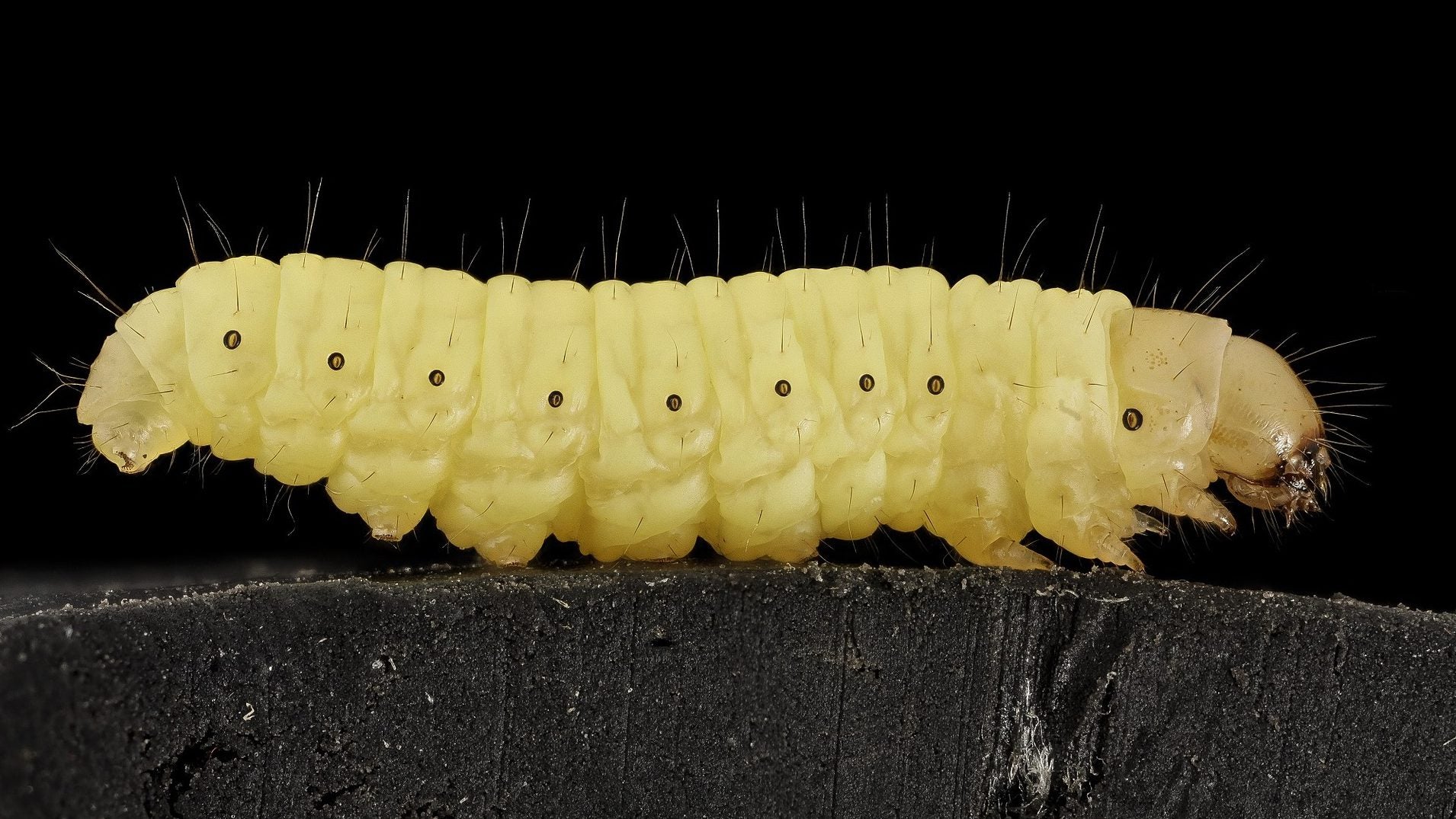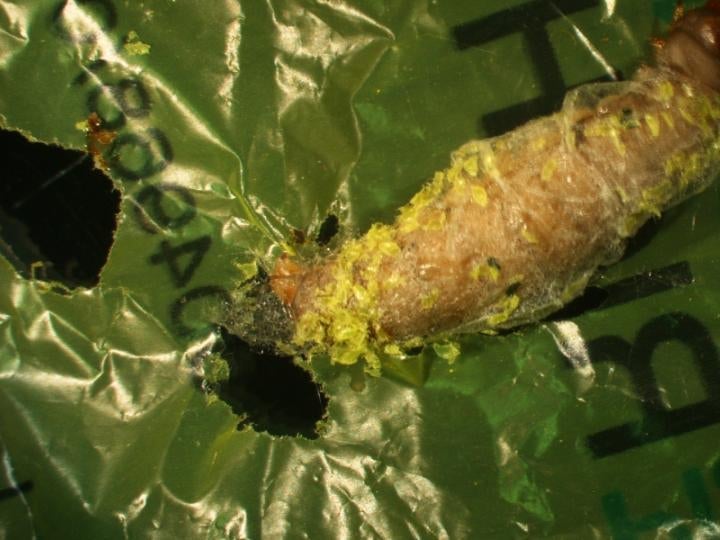Scientists have discovered a worm that eats plastic bags and leaves behind antifreeze
The wax worm, a caterpillar typically used for fishing bait and known for damaging beehives by eating their wax comb, has now been observed munching on a different material: plastic bags.


The wax worm, a caterpillar typically used for fishing bait and known for damaging beehives by eating their wax comb, has now been observed munching on a different material: plastic bags.
Scientist Federica Bertocchini of the Institute of Biomedicine and Biotechnology of Cantabria in Spain first noticed the wax worms’ plastic-eating skills when she was cleaning up a wax worm infestation in one of the beehives she keeps at home. She put the worms in a plastic bag, tied it closed, and put the bag in a room of her house while she finished cleaning the hive. When she returned to the room, “they were everywhere,” Bertocchini said in a statement. They’d escaped by chewing their way out of the bag, and fast.
“This project began there and then,” she said. In a paper published in Current Biology on Monday (April 24), Bertocchini and her colleagues described 100 wax worms chewing through a polyethylene shopping bag—the kind that people discard at a rate of 1 trillion per year globally—in around 40 minutes. After 12 hours, the bag was significantly shredded.
To make sure the worms weren’t just chewing through the plastic but actually eating it, the researchers pureed some worms and left the paste in contact with the plastic; after 14 hours, about 13% of the plastic was gone, suggesting that some compound in the worm’s digestive system was truly digesting the bag. The researchers also scanned the chewed-up bags for residue, and found ethylene glycol—the main compound in antifreeze—was left behind, “confirming [polyethylene] degradation.”

Once in a landfill, polyethylene plastic shopping bags don’t break down for a really, really long time—some researchers estimate bags and other polyethylene packaging could take between 100 and 400 years to degrade naturally. That has prompted a search for a biological “digestor” to speed up plastic degradation; In 2011, researchers found a fungus that could erode polyurethane, another common plastic piling up in trash heaps and oceans globally.
Another research team in 2014 found that bacteria within wax worms’ digestive systems could begin to degrade polyethylene after about two months. But Bertocchini’s worms did a lot more damage, a lot faster.
While the discovery is far from an actionable solution to plastic waste (worms would not be able to survive in the zero-oxygen environment of a landfill, for example) Bertocchini told Ed Yong at the Atlantic she hopes to find the enzyme the worms use to break down the plastic: “Maybe we can find the molecule and produce it at high-scale rather than using a million worms in a plastic bag.”